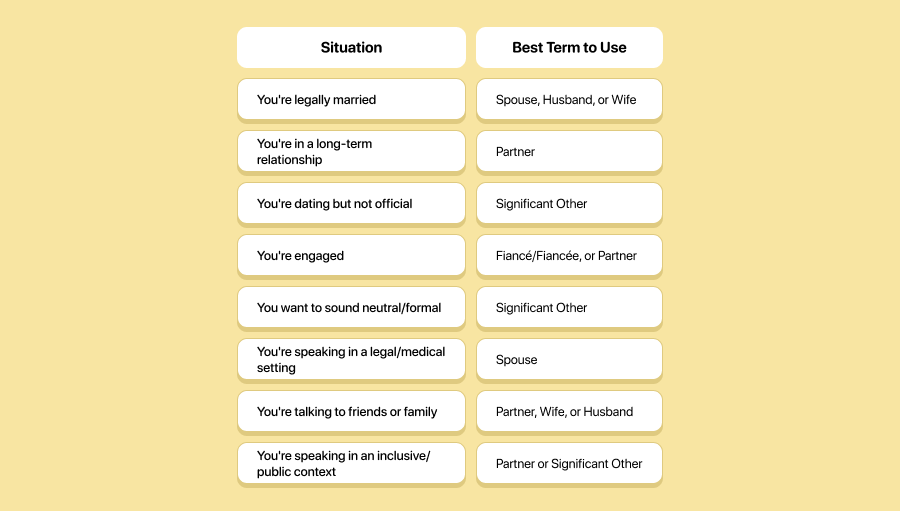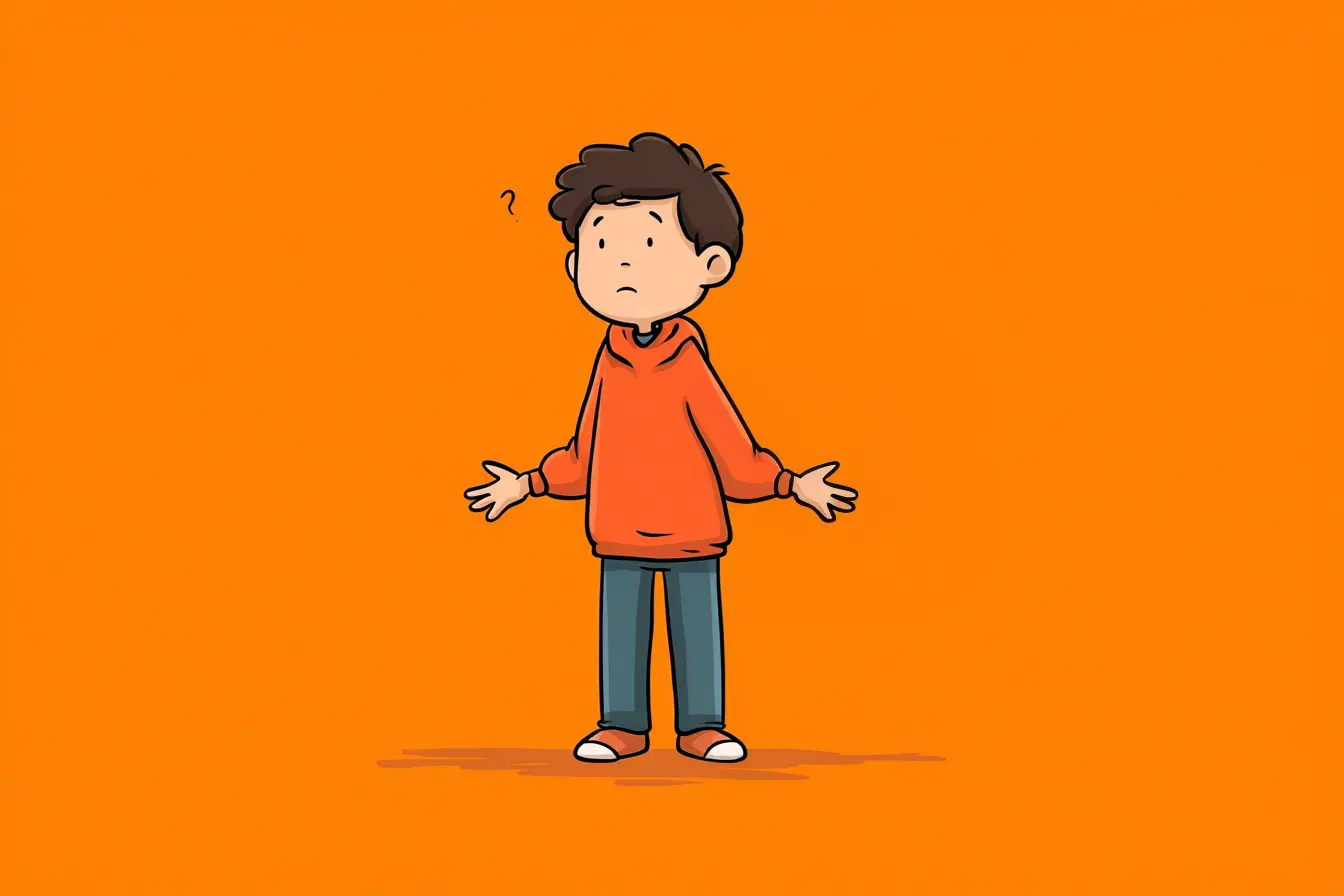When it comes to love and relationships, English gives us more than a few ways to describe the person we’re with. But if you’ve ever hesitated before saying “spouse,” “partner,” or “significant other,” you’re not alone. These words may seem similar, but they carry slightly different meanings, tones, and social contexts. So let’s clear up the confusion, because knowing the right word can say a lot about you and your relationship.
First Things First: What Is a Spouse?
In short, a spouse is someone you are legally married to. Husband or wife? Both are spouses. It doesn’t matter what gender; if you tied the knot in the eyes of the law, congratulations, you now have a spouse.
So if you're wondering, “Does spouse mean married?” the answer is a clear and confident yes.
According to most dictionaries, the spouse definition goes something like this:
“A husband or wife, considered in relation to their partner in marriage.”
In more casual terms: If you're legally married, you're someone's spouse.
The Difference Between Spouse and Wife (or Husband)
While “wife” and “husband” are more commonly used in everyday speech, “spouse” is especially popular in official settings, like legal documents, hospital forms, or taxes.
The difference is more about tone and formality than meaning.

Spouse vs Partner: What’s the Real Difference?
The difference between spouse and partner boils down to marital status and modern vibes.
- Spouse = legally married.
- Partner = not necessarily married. Could be dating, engaged, or even in a long-term committed relationship without a wedding ring in sight.
Why Do People Say "Partner"?
The word partner has become increasingly popular, especially among:
- Couples who aren’t married
- LGBTQ+ individuals (it’s gender-neutral and inclusive)
- People who prefer to emphasize equality over tradition
Example:
“This is my partner, Jamie.” (Could be married or not. It’s intentionally vague.)
Meanwhile:
“This is my spouse, Jamie.” (Means you're definitely married.)
Significant Other: The Friendly Catch-All
You might know exactly where you stand in your relationship, or maybe you're still figuring it out. Either way, “significant other” is a respectful, flexible term that covers a wide range of connections without getting too specific.
It’s especially useful when you want to refer to someone important in your life but don’t want to (or can’t yet) label them as a spouse, partner, or boyfriend/girlfriend.
It can refer to:
- A boyfriend or girlfriend
- A fiancé or fiancée
- A husband or wife
- A long-term partner (married or not)
- Or even someone you're dating seriously but not "official" with yet
This makes it perfect for:
- Workplace or formal events (“Feel free to bring your significant other to the company dinner.”)
- Inclusive writing and speeches
- Avoiding awkward assumptions about gender, status, or seriousness
So whether you're in a committed marriage or still testing the relationship waters, “significant other” has your back: it’s warm, polite, and wonderfully non-specific.
So Which Word Should You Use?
It depends on your situation and the message you want to send. Here's a quick cheat sheet:

Language reflects not just relationships, but how we see those relationships. Whether you're legally bound, in love without paperwork, or just figuring things out, English gives you options.
FAQ
1. What does spouse mean?
A spouse is the person you are legally married to, either your husband or your wife. It’s a formal term used to describe someone in a legally recognized marriage.
2. What is the meaning of “spouse” compared to partner or significant other?
The meaning of "spouse" is strictly tied to marriage; it's someone you are legally bound to. In contrast, a partner may be someone you're not married to but share a life with, and significant other is a flexible, inclusive term that fits everything from a serious relationship to a fiancé or even someone you're just beginning to date seriously.
3. Is “partner” only used for unmarried couples?
Not necessarily. While partner is often used for couples who aren’t married, many married people also use it, especially in modern, inclusive, or LGBTQ+ circles. It’s gender-neutral and can sound more equal and contemporary than “husband” or “wife.”


















